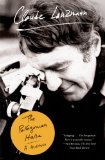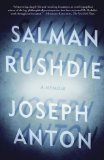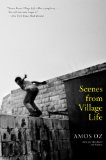Summary | Excerpt | Reviews | Beyond the book | Read-Alikes | Genres & Themes | Author Bio

A Memoir
by Claude LanzmannWhen I was offered the opportunity to review Claude Lanzmann's memoir, The Patagonian Hare, I jumped at the chance, though I had never before heard his name. Just the fact that he was one of Simone de Beauvoir's lovers compelled my interest. Over the past several years, I have spent hours making my way through Beauvoir's The Second Sex, a book that, for me, aligned a more philosophical understanding of what it means to be a woman with what I already felt in my heart and body. I have read all of her novels, two volumes of her memoirs, and the fascinating exploration of her committed yet notoriously open relationship with Jean Paul Sartre, Tête À Tête, by Hazel Rowley. I admit to being a complete Beauvoir geek; how could I not read about the only man she actually lived with for seven years?
Still, I was somehow innocently unaware of the formidable impact Lanzmann's memoir would have on me. Sartre, Beauvoir, and Lanzmann took existentialist philosophy to the page, to the bedroom, to the streets, and ultimately to the world, each in unique ways. Reading about Lanzmann's life - in his own words - is not only a 528-page lesson in how to be an existentialist, it is an infusion.
Besides having been a brave soldier, a tireless traveler and mountain climber, and a lover to many women, he was - and continues to be - a consummate writer.
His energy and passions leap from the page. Never is this a memoir about overcoming adversity, though he has suffered many sorrows and hardships. It is a joyous, sobering, and relentless testament to Sartre's statement, "Man is condemned to be free... because once thrown into the world, he is responsible for everything he does." ("Existentialism Is a Humanism" lecture, 1946).
In approximately chronological order, Lanzmann accounts for his life, with most chapters jumping further ahead in time, revealing the results and outcomes of each of his adventures. This pattern of boomeranging through the years is occasionally disconcerting, though he always brings the reader back to where he started. (For example, the first chapter gives the raison d'être for Lanzmann's obsessions, though how or why isn't clear until the very end.) Truthfully, there is probably no better way to make sense of such a full and complex life.
The arc of his story plays out from his involvement with the French Resistance during World War II as a teenager; to finishing his degree in philosophy and meeting Sartre and Beauvoir; to becoming a journalist and traveling to Israel in 1952, China and North Korea in 1958, and Algeria in 1959 during the country's long war for independence. His passion is for freedom and for life; he abhors anything that resembles oppression. In Israel he finds his life's true calling and becomes a film maker, an endeavor that culminates in the nine-and-a-half hour documentary Shoah (1985), an approach to the Holocaust that explores "death itself, death rather than survival." (See "Beyond the Book" feature.)
The extremities associated with making Shoah, and the controversy it unleashed, take up the final three chapters of Lanzmann's memoir. To fully understand how a passion for life becomes an obsession with the death of millions of Jews, you will have to take this journey with him. He is not a humble man; he apologizes for nothing. By the last page, I was fine with that.
![]() This review was originally published in The BookBrowse Review in April 2012, and has been updated for the
July 2013 edition.
Click here to go to this issue.
This review was originally published in The BookBrowse Review in April 2012, and has been updated for the
July 2013 edition.
Click here to go to this issue.

If you liked The Patagonian Hare, try these:

by Salman Rushdie
Published 2013
How do a writer and his family live with the threat of murder for more than nine years? How does he go on working? How does he fall in and out of love? How does despair shape his thoughts and actions, how and why does he stumble, how does he learn to fight back? In this remarkable memoir Rushdie tells that story for the first time; the story of one...

by Amos Oz
Published 2012
A portrait of a fictional village, by one of the world's most admired writers.
Your guide toexceptional books
BookBrowse seeks out and recommends the best in contemporary fiction and nonfiction—books that not only engage and entertain but also deepen our understanding of ourselves and the world around us.